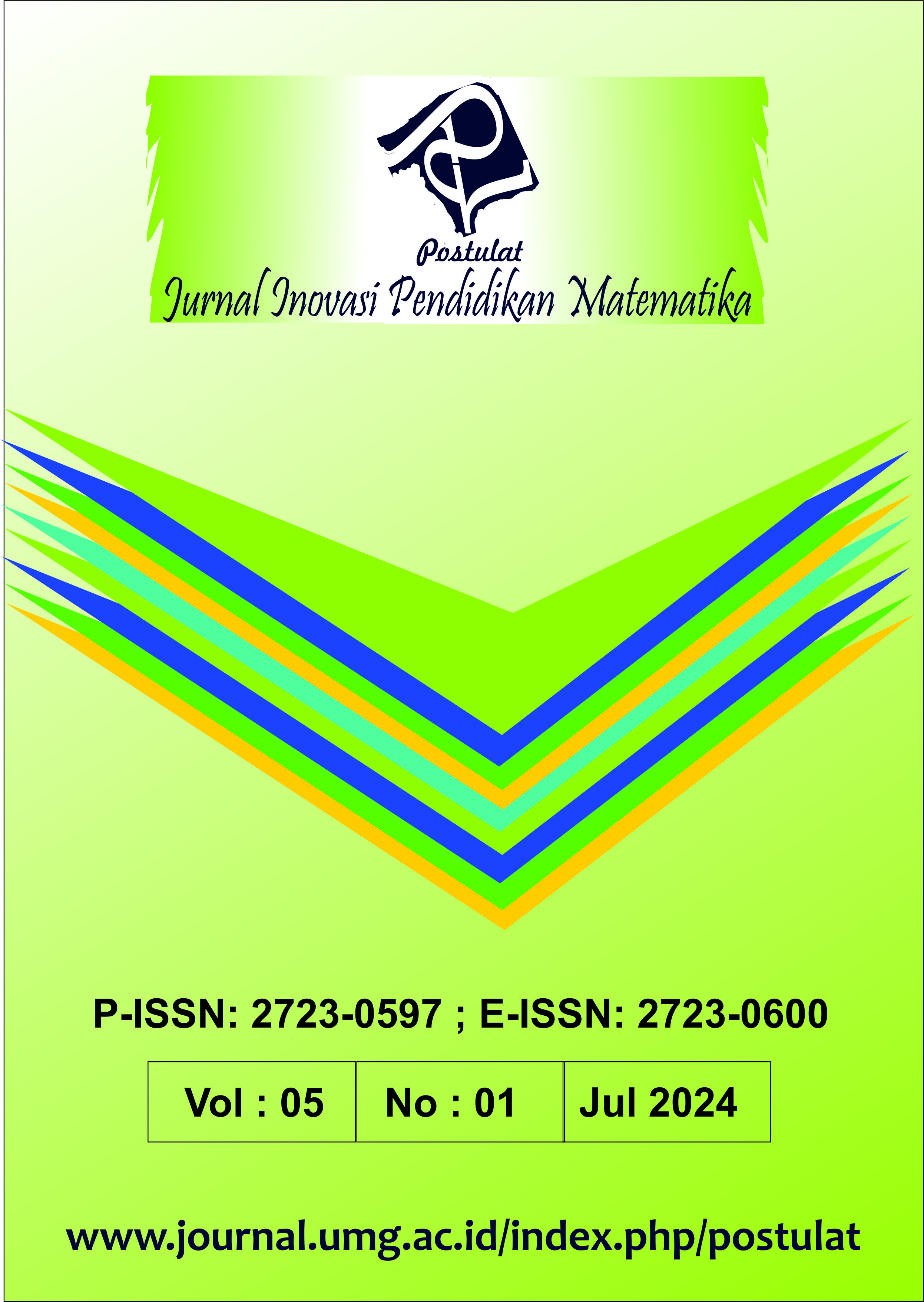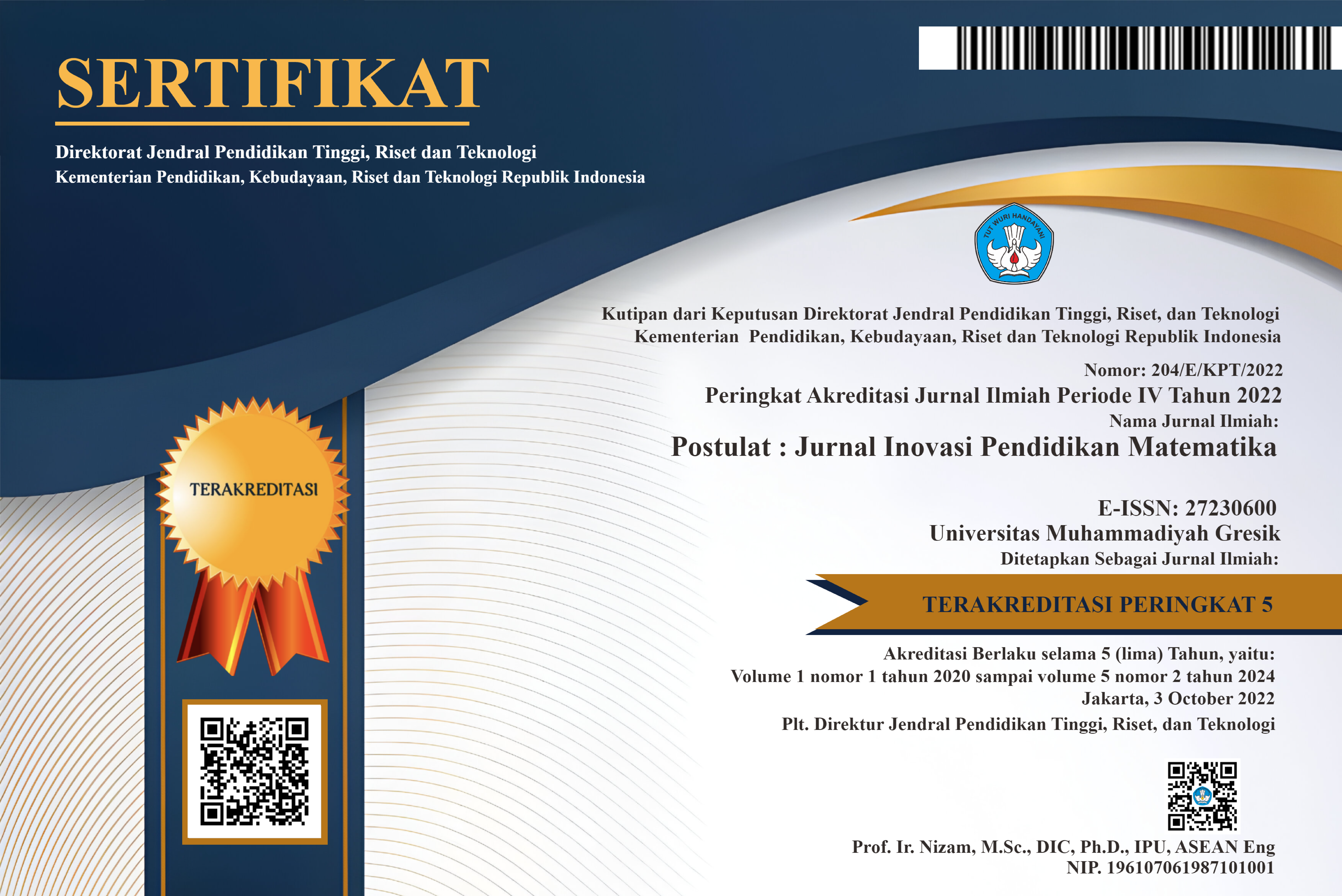Analisis Kompetensi Strategis Siswa pada Pembelajaran Mandiri Berbasis E-Modul-Dian Pangestika
DOI:
https://doi.org/10.30587/postulat.v5i1.7838Abstract
This study was conducted with the aim of describing and explaining in detail the strategic competencies in mathematics possessed by grade VIII students who have mathematical abilities at high, medium and low levels after they learned independently using electronic modules (e-modules). It focused on Kilpatrick's theory of strategic competence, specifically examining students' strategies for formulating, representing, and solving math problems. The qualitative descriptive research involved 3 students from class 8B at Manbaul Ulum Islamic Junior High School - one each with high, medium, and low math ability based on their daily assessment and midterm exam scores. The instruments used were SPLDV (System of Linear Equations) e-modules for self-learning, strategic competence tests, and interview guidelines. The results showed that students with high and medium math abilities fulfilled all strategic competence aspects - formulating problems through reading and verbal approaches, representing problems by making equations and using symbols, and solving problems analytically. However, students with low math abilities could only fulfill the formulating aspect by reading and verbal approaches. They struggled with representing the problem, and as a result could not solve it. In summary, math ability level impacted students' strategic competencies, with higher abilities correlating to stronger skills across all three aspects examined after e-module based self-learning.
Keywords: Strategic competencies; Self-Directed Learning; E-Modules.












